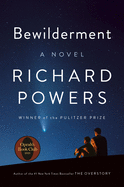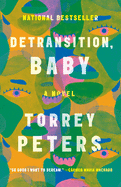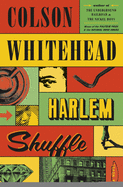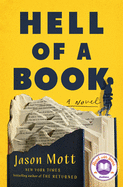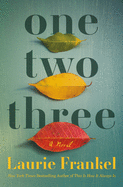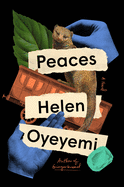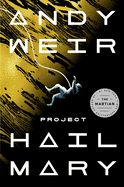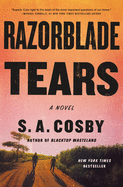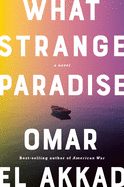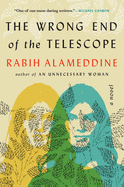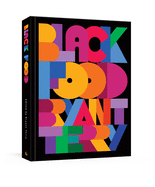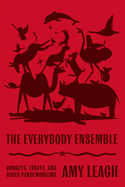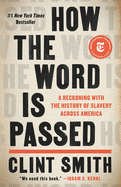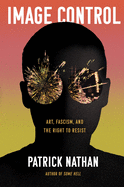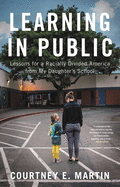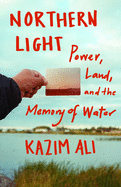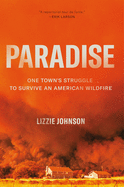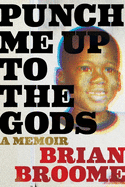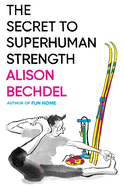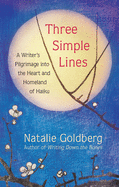Shelf Awareness Best Books of 2021
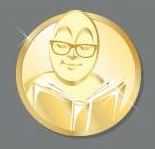 Little did any of us know what this year would bring. These 10 fiction and 10 nonfiction adult titles helped the team at Shelf Awareness reflect, sustain, find some bright spots and some literary companions during the strange and unpredictable year that was 2021. (Reviews appear below; see our Best Children's and YA Books of 2021 here.)
Little did any of us know what this year would bring. These 10 fiction and 10 nonfiction adult titles helped the team at Shelf Awareness reflect, sustain, find some bright spots and some literary companions during the strange and unpredictable year that was 2021. (Reviews appear below; see our Best Children's and YA Books of 2021 here.)
Fiction
Bewilderment by Richard Powers (W.W. Norton)
Detransition, Baby by Torrey Peters (One World)
Harlem Shuffle by Colson Whitehead (Doubleday)
Hell of a Book by Jason Mott (Dutton)
One Two Three by Laurie Frankel (Holt)
Peaces by Helen Oyeyemi (Riverhead)
Project Hail Mary by Andy Weir (Ballantine)
Razorblade Tears by S.A. Cosby (Flatiron)
What Strange Paradise by Omar El Akkad (Knopf)
The Wrong End of the Telescope by Rabih Alameddine (Grove Press)
Nonfiction
Black Food: Stories, Art, and Recipes from Across the African Diaspora, edited by Bryant Terry (4 Color)
The Everybody Ensemble: Donkeys, Essays, and Other Pandemoniums by Amy Leach (Farrar, Straus and Giroux)
How the Word Is Passed: A Reckoning with the History of Slavery Across America by Clint Smith (Little, Brown)
Image Control: Art, Fascism, and the Right to Resist by Patrick Nathan (Counterpoint)
Learning in Public: Lessons for a Racially Divided America from My Daughter's School by Courtney E. Martin (Little, Brown)
Northern Light: Power, Land, and the Memory of Water by Kazim Ali (Milkweed)
Paradise: One Town's Struggle to Survive an American Wildfire by Lizzie Johnson (Crown)
Punch Me Up to the Gods: A Memoir by Brian Broome (Mariner)
The Secret to Superhuman Strength by Alison Bechdel (Mariner)
Three Simple Lines: A Writer's Pilgrimage into the Heart and Homeland of Haiku by Natalie Goldberg (New World Library)
Shelf Awareness Best Books of 2021
Book Review
Fiction
Bewilderment
by Richard Powers
Bewilderment by Pulitzer Prize-winner Richard Powers (The Echo Maker; Orfeo; The Overstory) is a novel of great pain and compassion. Focusing on a nuclear family but also concerned with ecological collapse and the possibilities of distant space, this is a heart-wrenching story with an important message to convey. Theo Byrne is an astrobiologist: he writes programs to explore, hypothetically, distant planets that may host life. But readers meet him first in a still more important role: that of single parent to Robin, who is just turning nine. Robin is a special child: artistic, sensitive, caring, intelligent. Powers deserves his reputation as a consummately talented writer. This 2021 Booker Prize finalist invites readers to meditate on the natural world, human and animal rights, the potentialities of deep space, the role of science and technology in human societies, the challenges of modern childhood and more. --Julia Kastner
Norton,
$27.95,
hardcover, 288p., 9780393881141
Detransition, Baby
by Torrey Peters
A powerful sense of empathy and a devilish wit fuel Detransition, Baby by Torrey Peters, an exceptionally smart and funny first novel about a soapy love triangle, longlisted for the Women's Prize. Reese has always longed to be a mother but has yet to become one--because society tends to sneer at trans women, especially those who aspire to motherhood. In fact, it was largely social stigma that prompted Reese's ex-girlfriend to break up with her and detransition three years earlier. Ames had been Amy for about six years, taking hormone therapy that he thought had left him sterile. Until, that is, Ames's boss Katrina beckons him into her office to announce that the little affair they've been having has gotten her pregnant. Peters displays an inspiring knack for highlighting common ground, typically buried under heaps of identity politics, as she allows her characters opportunity to relax their grip on what has hardened them, and reach for a softer future. --Dave Wheeler, associate editor, Shelf Awareness
One World,
$18,
paperback, 368p., 9780593133385
Harlem Shuffle
by Colson Whitehead
Harlem Shuffle once again shows off Colson Whitehead's ability to master myriad genres, this time with his first crime novel, the eagerly awaited follow-up to his Pulitzer Prize-winning novels The Underground Railroad and The Nickel Boys. Whitehead confidently crafts a pressure-cooker novel about a used furniture dealer sliding into criminality in tumultuous early-1960s Harlem. Ray Carney is trying to escape the shadow of his father, a long-time crook, by establishing himself as a legitimate businessman, while sometimes dabbling in dubiously acquired merchandise. But it's his association with his cousin Freddie that threatens to drag Ray into real trouble again and again, as Freddie's harebrained criminal schemes inevitably go sideways. Harlem Shuffle makes excellent use of time-honored techniques, piling problem upon problem onto Ray's shoulders. For readers, Ray's constant balancing over the abyss makes for a gripping story, as lovingly detailed as it is good pulpy fun. --Hank Stephenson, the Sun magazine, manuscript reader
Doubleday,
$28.95,
hardcover, 336p., 9780385545136
Hell of a Book
by Jason Mott
Jason Mott (The Crossing; The Returned) explores the topography of lingering grief and trauma, as well as the pressures and contradictions of fame for a Black man in the U.S. Alternating chapters tell the stories of two heroes: an African American boy nicknamed "Soot," and a nameless-by-choice African American author on tour for his breakout novel, Hell of a Book. Soot, bullied for the darkness of his skin, tries to master the knack of becoming invisible, which his parents believe will guarantee his safety in their rural North Carolina community. As he travels a country mourning its latest police shooting victim, the author finds his steps dogged by "the Kid," a 10-year-old boy with skin "darker than the darkness of sleep" whom only he can see. The sands of reality constantly shift in this 2021 National Book Award finalist and Carnegie Medal nominee. Mott's unflinching meditation on racism, violence and navigating life as a Black man in America is a surreal and searing triumph. --Jaclyn Fulwood, blogger at Infinite Reads
Dutton,
$27,
hardcover, 336p., 9780593330968
One Two Three
by Laurie Frankel
"One, Two, Three" are the "triplet shorthand" names Mab, Monday and Mirabel Mitchell call each other in this novel by Laurie Frankel (This Is How It Always Is), an Indie Next Pick. It tells a heartbreaking yet heartwarming story of a town destroyed by chemical pollution, and its fight for justice. The now 16-year-old Mitchell sisters were born to newly widowed Nora in the wake of Bison Chemical's poisoning of the town's water supply. Nora has been tenaciously building a class-action lawsuit for 17 years, while holding multiple jobs; her daughters have a "sister-pact" to aid her fight. When Bison announces it will reopen in the town, and a handsome, suave boy enrolls in school, the sisters are dazzled yet pragmatic: maybe he's the key to the evidence Nora needs. The story unfolds in alternating chapters, emphasizing the whip-smart girls' distinctive voices, sharp humor and mutual affection. All the way to a fast-paced and heroic climax, readers will be rooting for this unforgettable family. --Cheryl McKeon, Book House of Stuyvesant Plaza, Albany, N.Y.
Holt,
$26.99,
hardcover, 416p., 9781250236777
Peaces
by Helen Oyeyemi
Helen Oyeyemi's command of magical realism is practically mind altering in her unforgettable seventh novel. Under a somewhat twee pretense, freshly committed partners Otto and Xavier Shin, accompanied by their faithful mongoose, travel by boutique train carriage for their "non-honeymoon." But from there, Peaces sprawls into astonishing, and even frightful, territories of the interior, more so than new horizons abroad. Oyeyemi (Boy, Snow, Bird; Gingerbread) may appear to direct this beguiling novel off the rails at times, but its manic twists never spin out. They instead serve to reorient the gravity of the situation. The Shins' getaway becomes hitched to the rising stakes surrounding a sizable inheritance promised to the carriage owner, Ava, by a former employer. The catch is that she must prove her sanity on the final day of a train ride riddled with apparitions: phantom whistling, disappearing mongoose catchers, perplexing incidents of "bespoke vandalism" and mystifying "canvases... bathed in white." Peaces is a superbly fun Rorschach test of staggering creativity. --Dave Wheeler, associate editor, Shelf Awareness
Riverhead,
$27,
hardcover, 272p., 9780593192337
Project Hail Mary
by Andy Weir
Andy Weir (The Martian; Artemis) has created a propulsive space adventure in Project Hail Mary, now in film development with Ryan Gosling. The story centers on Dr. Ryland Grace, a middle-school biology teacher, whose obscure paper about alien races comes to the attention of some important individuals when the sun starts rapidly fading. More than half of humanity is predicted to die, and the earth's ecology will be in shambles if scientists can't figure out why the sun has suddenly started losing heat. Fans of The Martian are sure to love Project Hail Mary, as it mixes the pathos of the fate of humanity with humor. Funny, poignant and full of interesting science, Project Hail Mary is a wild ride that is chock full of interstellar secrets. --Jessica Howard, bookseller at Bookmans, Tucson, Ariz.
Ballantine,
$28.99,
hardcover, 496p., 9780593135204
Razorblade Tears
by S.A. Cosby
Ike Randolph, who is at the center of S.A. Cosby's (Blacktop Wasteland) brutal and beautiful Razorblade Tears, has no illusions about his mission to avenge the death of his son. Ike has been out of prison for 15 years and is making good money when his only child, Isiah, is fatally shot, as is Isiah's husband, Derek. At the funeral, Ike meets Derek's father, ex-con Buddy Lee: neither man could say that his behavior toward his gay son was supportive. When the murder case stalls out, Buddy Lee proposes to Ike that they take charge. Ike is reluctant at first, but not for the reason Buddy Lee suspects: "He wasn't afraid to spill blood. He was afraid he wouldn't be able to stop." Buckets of blood are spilled in this novel--which became an instant New York Times bestseller--but in a volume that's proportional to the amount of soul-searching going on and the number of jokes being cracked. --Nell Beram, author and freelance writer
Flatiron,
$26.99,
hardcover, 336p., 9781250252708
What Strange Paradise
by Omar El Akkad
Winner of the Scotiabank Giller Prize, What Strange Paradise by Omar El Akkad is a tender drama for our times, featuring two children on the run from authorities on the serene Greek island of Kos. El Akkad's exquisite second novel (after American War) is written with a fluid beauty that captures nature's ferocious power and glory. The story opens with a boat and bodies, including a child, washed onto shore close to a luxury hotel, a horrific scene. The child, an eight-year-old Syrian boy named Amir, awakens and flees into a nearby forest. Colonel Dimitri Kethros is in charge of "rounding up the illegals" on the island, and he is determined to track down the boy. Fortunately for Amir, he meets a local teenage girl named Vänna who offers to help him. Egyptian American journalist El Akkad is a writer of global sensibilities, deploying his formidable craft to speak to the crisis of humanity at political borders. --Shahina Piyarali, reviewer
Knopf,
$26,
hardcover, 256p., 9780525657903
The Wrong End of the Telescope
by Rabih Alameddine
In The Wrong End of the Telescope, Rabih Alameddine (celebrated author of The Angel of History and An Unnecessary Woman) trains a curious lens on the Syrian refugee crisis through the volunteerism of Dr. Mina Simpson, a trans woman from the United States. She arrives on the island of Lesbos at the behest of her friend Emma, whose NGO needs someone with Mina's skills. Moved by a compassion deeper than that of the typical disaster tourist, Mina makes herself useful by attending to Sumaiya, a refugee who is resolute in her desire to protect her family as she attempts to conceal a terminal illness. But this arresting work of art has many more secrets to reveal. "The island seemed to be casting remembrance spells," Mina says in one of numerous ruminative chapters about her life leading up to this trip. With enormous generosity and knowing humor, The Wrong End of the Telescope is an unequivocal masterpiece. --Dave Wheeler, associate editor, Shelf Awareness
Grove Press,
$27,
hardcover, 368p., 9780802157805
Nonfiction
Black Food: Stories, Art, and Recipes from Across the African Diaspora
by Bryant Terry, editor
Black Food: Stories, Art, and Recipes from Across the African Diaspora, compiled by James Beard and NAACP Image Award-winning chef and food activist Bryant Terry, is the first book from his 4 Color imprint. This gloriously photographed volume--a "communal shrine to the shared culinary histories of the African diaspora"--invites readers to soak up the stories of generations of women in Erika Council's family as she shares her recipe for Buttermilk Biscuits; to learn about Sudan while making Mullah Karkade with Omer Eltigani; and to understand the meaning of Sankofa ("to go back and get it" or "return for it") by delighting in Selasie Dotse's Ghanaian Crepe Cake. Terry's carefully gathered collection of words, art and recipes from more than 100 contributors demonstrates that food, past and present, is love as activism. --Jennifer M. Brown, senior editor, Shelf Awareness
4 Color,
$40,
hardcover, 320p., 9781984859723
The Everybody Ensemble: Donkeys, Essays, and Other Pandemoniums
by Amy Leach
With The Everybody Ensemble: Donkeys, Essays, and Other Pandemoniums, Amy Leach (Things That Are) takes her readers on a playful, rigorous, mind-bending romp through human nature, the natural world, spirituality and more. Her perfectly singular voice sings the most surprising notes in an imaginative blend of silliness and seriousness. This sophomore collection of 23 essays opens with its title offering, in which the narrator welcomes all 20 quintillion animals to the Everybody Ensemble. How will they be arranged and organized? What songs will they perform? Leach employs a huge range of rhetorical devices while retaining a sense of whimsy and plain fun. Don't be misled by her joyful absurdity or wit with words: Leach is deadly serious in her questioning of the cosmos, Earth's composer and whether "even with all the troubles of our time, maybe it can still be fun to be a frog." The Everybody Ensemble is a revelation. --Julia Kastner, librarian and blogger at pagesofjulia
Farrar, Straus and Giroux,
$26,
hardcover, 208p., 9780374109660
How the Word Is Passed: A Reckoning with the History of Slavery Across America
by Clint Smith
Every part of the U.S. has deep, often unacknowledged ties to the institution of chattel slavery. In How the Word Is Passed, his first nonfiction book, poet and educator Clint Smith (Counting Descent) visits eight locations with complicated histories relating to slavery, beginning in his hometown of New Orleans. The disconnect--the honoring of whites and the erasure of Black stories, no matter the era--continues as Smith embarks on his nationwide self-guided tour of places bearing the deep scars of slavery, including Monticello, Angola Prison, Galveston Island, Tex., New York City and Goree Island, Dakar, Senegal, once a transition point for millions of slaves and now a memorial to their suffering. Each place, no matter its current approach, is vital to a holistic understanding of slavery in the U.S. Smith's work is a passionate, thought-provoking, brilliantly observed call for Americans to take a new, uncomfortable but essential look at their own history. --Katie Noah Gibson, blogger at Cakes, Tea and Dreams
Little, Brown,
$29,
hardcover, 352p., 9780316492935
Image Control: Art, Fascism, and the Right to Resist
by Patrick Nathan
Lambda Award finalist Patrick Nathan (Some Hell) brings vulnerability and clarity to current events through the lens of art criticism in Image Control: Art, Fascism, and the Right to Resist, a book somehow both infuriating and comforting. His cri de coeur challenges insidious assumptions that surround the single image. "Photographs don't speak; they are used as speech. Photographs don't mean; they are imbued with meaning." As media, both social and traditional, distill themselves into image-based reportage, truth becomes ever more elusive. As an example, Nathan carefully unpacks the photo emblazoned on Time magazine in 1998 that solidified Matthew Shepard as a gay martyr, but a figure whose story is in truth far more complicated than that single image. This is a book both political and personal, searing and humbling, a rare and inspiring instance of cultural criticism in which the author willingly and necessarily interrogates himself as well. --Dave Wheeler, associate editor, Shelf Awareness
Counterpoint,
$26,
hardcover, 240p., 9781640094536
Learning in Public: Lessons for a Racially Divided America from My Daughter's School
by Courtney E. Martin
In Learning in Public, Courtney E. Martin (Do It Anyway) grapples with questions of parenting, education and racial divides in the United States through the lens of her daughter's public school in Oakland, Calif.: first selecting it, then attending it. Determined to live her anti-racist values, Martin ultimately chose to send her daughter to Emerson Elementary--a decision informed by dozens of conversations with other parents, educators, school board members, neighbors. Martin brings to her perspective on her daughter's education a self-reflection that goes well beyond her one daughter and their one family, or even their one school, placing instead the story of her white family in the racial history of the U.S. and the gross disparities seen in the American public education system. This reflection, combined with Martin's willingness to admit her own mistakes and acknowledge where her actions may have harmed others, allows Learning in Public to live up to its title. --Kerry McHugh, blogger at Entomology of a Bookworm
Little, Brown,
$28,
hardcover, 400p., 9780316428262
Northern Light: Power, Land, and the Memory of Water
by Kazim Ali
In Northern Light, Kazim Ali explores how a sense of place shapes one's identity. Born in the U.K. to political refugees from India, Ali eventually migrated to Canada with his family. His father worked as an electrical engineer for Manitoba Hydro, the province's electrical authority. Decades later, Ali finds himself drawn back to Jenpeg, a place now gone, having been constructed to last only as long as Hydro needed employees in the area. He ends up visiting the town of Cross Lake, on the Cross Lake Indian Reserve, to learn more about his childhood home. There Ali finds himself "awash in remembrance"--of his childhood, but also in the collective memories of the Pimicikamak Cree people who still live there and hold the memory of the land in their stories. Ali moves from writing a memoir to something larger than the story of one person, one family, or even one place. --Kerry McHugh, blogger at Entomology of a Bookworm
Milkweed,
$24,
hardcover, 200p., 9781571313829
Paradise: One Town's Struggle to Survive an American Wildfire
by Lizzie Johnson
The first book by San Francisco Chronicle staff writer Lizzie Johnson, Paradise is a terrifyingly intimate account of the Camp Fire that killed 85 people and laid waste to the rustic northern California town of Paradise, "a tinderbox nestled between two geological chimneys." Early on the morning of November 8, 2018, gale force winds dislodged a section of Pacific Gas & Electric electrical line from a poorly maintained 100-year-old transmission tower and deposited it onto the bone-dry grass of a region that had received 0.88 inches of rain in the preceding six months. With that, the deadly Camp Fire was born. For all the courage and heroism Johnson recounts, she clearly identifies her principal villain: PG&E. And as Johnson thoroughly explains, other culprits like climate change, flawed forestry management and haphazard development in the wildland-urban interface guarantee that the Camp Fire won't be the last or the worst catastrophic wildfire. --Harvey Freedenberg, freelance reviewer
Crown,
$28,
hardcover, 432p., 9780593136386
Punch Me Up to the Gods: A Memoir
by Brian Broome
With his thoroughly electric debut, Punch Me Up to the Gods, Brian Broome will shatter your heart. Then make you laugh, sweat and cringe. And all while eviscerating stereotypes and expanding notions of Black masculinity and queer identity. Broome structures his multidimensional memoir around two through-lines: Gwendolyn Brooks's seminal poem "We Real Cool" and a thread detailing a bus ride during which Broome watches a young Black father offer lessons on how to "be a man" to his toddler son. Interspersed between lines of Brooks's poem and vignettes from the bus ride, Broome offers brutal memories and beautifully rendered stories from his own life, fleshing out the various ways he, too, has been taught, encouraged or forced to be a man. The sum is an exploration that with unflinching honesty and style creates room for Black masculinity like his: queer, sensitive, flawed, terrible at basketball, reflective, funny. --Katie Weed, freelance writer and reviewer
Mariner,
$26,
hardcover, 272p., 9780358439103
The Secret to Superhuman Strength
by Alison Bechdel
Comics artist Alison Bechdel approaches the subject of exercise in The Secret to Superhuman Strength with the same insatiable curiosity, interdisciplinary rumination and candid humor as she did her parents in Fun Home and Are You My Mother? "My bookish exterior perhaps belies it, but I'm a bit of an exercise freak," Bechdel reveals. At an early age, her interest was piqued by Jack LaLanne's televised exercise routines for women: "[F]rom Jack I learned that the body was something you could shape." As she grows into adulthood, she considers her place within generational shifts regarding gender, as well as philosophical movements in her search for an ever-elusive sense of balance between body and mind. Grounding this incredible journey is Bechdel's distinctive artwork, colored extensively by her partner, Holly Rae Taylor. The Secret to Superhuman Strength is far greater than the diverting lark it seems; it is a potent testament to the human condition. --Dave Wheeler, associate editor, Shelf Awareness
Mariner,
$24,
hardcover, 240p., 9780544387652
Three Simple Lines: A Writer's Pilgrimage into the Heart and Homeland of Haiku
by Natalie Goldberg
Each book Natalie Goldberg writes builds on the one before. Writing Down the Bones, her first, gave amateurs ample leeway to doodle, explore and dream on the page. In that book's chapter "A Sensation of Space," Goldberg cites haiku from Shiki, Issa, Buson and Basho. Those four send her on the title pilgrimage of Three Simple Lines. This book brings her body of work full circle--her Zen practice, her writing practice and the ways in which each enhances the other. It's a tribute to her teachers, her students and to Allen Ginsberg, who introduced her to these Japanese haiku masters. Some chapters are only four pages long; all leave readers with big ideas to digest. Goldberg demonstrates the fluidity between teacher and student, the desire to share knowledge and the willingness to learn. She closes the book with six rules of haiku penned by one of her students, and sends readers on their way. --Jennifer M. Brown, senior editor, Shelf Awareness
New World Library,
$22.95,
hardcover, 176p., 9781608686971
 Little did any of us know what this year would bring. These 10 fiction and 10 nonfiction adult titles helped the team at Shelf Awareness reflect, sustain, find some bright spots and some literary companions during the strange and unpredictable year that was 2021. (Reviews appear below; see our Best Children's and YA Books of 2021 here.)
Little did any of us know what this year would bring. These 10 fiction and 10 nonfiction adult titles helped the team at Shelf Awareness reflect, sustain, find some bright spots and some literary companions during the strange and unpredictable year that was 2021. (Reviews appear below; see our Best Children's and YA Books of 2021 here.)


